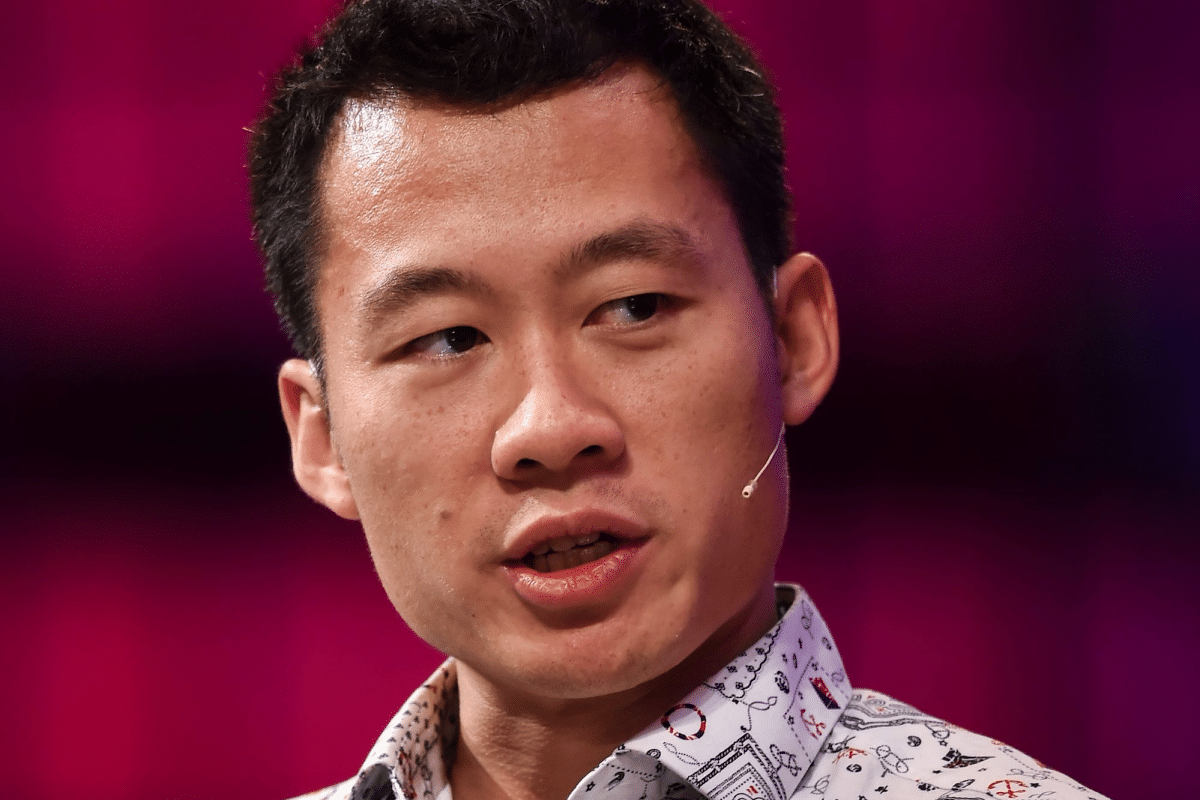It isn’t often that someone who’s built and sold a $1 Billion company credits their mother for their professional success. But Justin Kan does just that when asked about the roots of his leadership tenacity. After selling Twitch and working at Y Combinator as a general partner, Justin tackled a challenge few others would take on: founding a new startup in a domain in which he had no prior experience. Justin’s new company, Atrium, is a legal startup that aims to bring price transparency and software to an industry not known for innovation.
As a long time executive coach and now cofounder and CEO of Torch, I have worked with leaders from diverse backgrounds. But it isn’t often that great leaders will attribute their success to their own mother. Justin’s ambition and much of his leadership style can be traced back to an entrepreneurial mother who arrived in the US as a teenager with few resources.
Cameron: You said your mom was kind of a tiger mom in some ways.
Justin Kan: Yes, she was a tiger mom in the sense that she expected a lot from us. But the way that she motivated us was different from the stereotype. She wasn’t a very punitive person…I’m not sure if we didn’t need it, or if it just wasn’t her style. Instead, she motivated us by setting a high bar, and then role modeling for us by doing it herself. She came here at the age of 17 from Malaysia. My mom is Chinese, but she grew up in a poor peasant family in Malaysia. They were farmers. She arrived with nothing and made her way to the community college for two years, and then went to Seattle and transferred to the University of Washington,where she graduated with a BS in physics and got a master’s in computer science. From there she started working at Digital Equipment Corp.
Cameron: That is pretty incredible for a young woman who grew up as a farmer. Do you have any insight about how she pushed you to be ambitious?
Justin Kan: She would always tell us “You need to try your best in everything you do.” Which for me translated to, “You need to be the best, always strive to be the best.” Which is not a very healthy way to live, but I think it’s definitely driven me to keep doing startups, try to be excellent, make a lot of money, be accomplished in the eyes of society, and finally gain acceptance from my parents.
Cameron: Was there anything stylistic in the way that she led that stands out for you?
Justin Kan: Probably the number one leadership example that stands out for me has to do with how she assigned chores. We were three boys of course. It was me, Daniel and Damien. She didn’t actually assign them to individuals. She just said, “Here is the list of things that need to get done, you guys need to collectively do the set of things on this list, and nobody gets to play video games until you execute these things. We thought that was very unfair, but of course the important thing is what it taught us. It changed us from thinking of ourselves and our individual responsibilities, to thinking of ourselves as a team. It became about accomplishing a goal as a team, and working together to divide and conquer, holding each other accountable, and being accountable to our brothers encouraged us to execute.
Cameron: How has that informed how you approach leadership today?
Justin Kan: Well I think that’s very true for our startup, right? Any startup, it’s like we are all in this boat together, sink or swim, and it doesn’t matter who does it or who gets credit. We just need to get these specific things done so we can be successful, and if we’re successful, everyone is going to win. If we’re not successful, everyone is going to lose. Of course, that breaks down a little bit after you become a bigger and bigger company. If you’re a Microsoft-sized organization, it’s very hard to keep that unity of everyone feeling like they’re in the same boat together, but I think from a team perspective, it’s really important to lead in a way where your team has a goal and you’re working together to achieve that goal. So that was one really big takeaway that I think has done really well for me and my brothers.
Cameron: Clearly her leadership style was successful because all three of you have had success. Daniel Kan co-founded Cruise, and Damien the youngest, is doing really well as a software engineer at Alto Pharmacy.
Justin Kan: Yes, all three of us are pretty successful from a business perspective and it isn’t a coincidence. Another interesting thing about my mom is her entrepreneurship. I think my mom was always interested in new stuff, like new businesses, new ideas, new home improvements even. I feel like I have a similar obsession with new industries, and new businesses, and that’s what led me into startups and keeps me interested in startups. But this also taught me an incredible work ethic. She used to fix up rental houses and stuff on the weekends. She was a mortgage broker and a real estate agent. She was a programmer first, but then she was a mortgage broker and real estate agent and basically she would buy houses and rent them out. And we would do all this shit to fix them up, like painting houses and basic repairs, but I would also help my mom in the office, doing data entry for the mortgage side of things. I remember thinking, that I want to just have a nine-to-five job when I grow up, because it was always so stressful and I have to do all this work, it’s painful. And I’ll never forget what her message was. ”You think this is hard?” she’d say, when we were painting a house or whatever and bitching, she’d be like, “you wouldn’t last a day where I came from.” She’d tell us that life is pain, in a way, but it’s also good, you have to take the good with the bad. You can’t eliminate the bad, otherwise the good times have no meaning.
Cameron: I imagine you’ve experienced ups and downs as both a founder and as an investor? What is the difference?
Justin: Yes, and I think about that a lot, because starting a startup is very stressful. I have a very nice life as an investor, because as an investor there’s the stress of picking the right companies and FOMO and all that but once you invest there’s not much you can do. So being an investor is very easy, in a lot of ways, because you don’t have that much choice. You can stress about waiting. But when you’re running a company, there’s a lot you can do, so it’s always your fault if something’s not working. And even if it is working there’s the stress of ambition. I think everybody feels stressed, right? It’s part of the human condition to be stressed out about things. And I think every founder moves the goalposts for themselves. Everybody is always looking up. I started a billion-dollar company, but I have friends who started ten-billion-dollar companies, thirty-billion-dollar companies. And those guys are looking up at Zuck, and that guy’s probably looking at Steve Jobs and being like, “I wish I was Steve Jobs.” And Steve Jobs is fucking dead. So there’s always somebody to be looking up to and it is limitless…somebody’s doing better than you, that’s just natural.
Cameron: How do you handle the pressure of that responsibility, the fact that when something’s not working at Atrium, it’s always your fault? And even if Atrium is really successful, it still won’t solve your stress because of the human condition around striving? It is an incredible double bind.
Justin Kan: Well, I get therapy first of all. Having people you can confide in and talk to about your problems is really important. After all this, my mom has become a therapist which is interesting. I get coaching for myself and my company as a whole with Torch.io. I also exercise regularly and I meditate a lot. And I hire people to complement me. To do that well I think it is important to be self-aware. Obviously, knowing what your problems are is the first and necessary step in hiring a good team. Knowing your problems and shortcomings is the first step to complementing yourself, which is super important. And if you don’t know yourself and you can’t admit your flaws, you can’t do that well.
Cameron: Talk to me about core values at Atrium. I imagine your values are shaped by your family organization, and your experience at Twitch?
Justin Kan: Accountability, analytical thinking, and assertive communication. The first one is the most important link to performance. At Twitch, performance is what mattered. Emmett, Michael and Kyle were all super competent and that’s because we were all accountable to each other. If we weren’t, I don’t even think we would be friends. Analytical thinking as well. That is something I really learned from Emmett. He is a highly analytical person, and that is something he has really taught me. That quality has worked well for him. When we were kids, he got into all the best programs and schools, and then early entrance at Yale. When we first started Twitch, I remember saying to him “this is going to be successful, because everything you’ve ever done has been a success.” And you know what, it was!
Cameron: I believe that every leader has some unique psychological superpower. What is yours?
Justin Kan: Sure, I think my unique, psychological superpower is the ability to create a harmonic resonance in my own beliefs. I can just believe something strongly and will it into existence. I pitch it, and I pitch it, and I pitch it, and I pitch it, and I just believe it more and more and more and more. I can conjure up something out of the blue. Like Justin TV, which was a completely crazy idea for which the technology didn’t even exist. We decided to do this live-streaming show 24/7, the technology didn’t even exist to do that. We invented all of it just so we could create our own live video show. Was that going to be a thing? Why? We had no evidence that it was a good idea at all. In fact, it wasn’t a very good idea, but it got us started. The point is, that all came from my will to do it and excitement about it. I believed that it would be something.
Cameron: I get that your mom has inspired you to be a leader. With all the success you’ve already had, do you really need to be working this hard anymore?
Justin Kan: People always ask, “why do you want to start another company? You could just be on the beach doing whatever you want.” But you’ve got to do something. People tell stories and write about the good times, but they don’t really focus on the struggle. And sometimes I’ll be sitting around with my friends, enjoying some awesome experience on a boat or something, and I will really be able to appreciate it because I can say to myself “I really earned this.” But that wouldn’t be the case without the struggle, that is what I learned from my mom. That is the thing that makes life worth doing, for me anyways, it’s that contrast.

